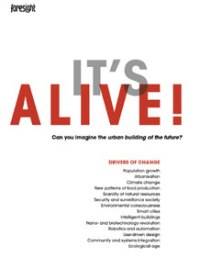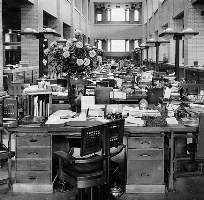February 19, 2013
Room for improvement in public sector workplace management
 Last week technology company Citrix announced that the UK Government could cut its property costs by a third by adopting flexible working policies. It used a Freedom of Information request to discover how much space each public sector employee in the UK is allocated and how much it costs then applied a formula to work out how this would be affected by greater adoption of flexible working. What was interesting was not just the up-front argument you would expect from an ICT provider but also the discovery that the average employee is allocated 1.1 workstations with some enjoying 1.6. (more…)
Last week technology company Citrix announced that the UK Government could cut its property costs by a third by adopting flexible working policies. It used a Freedom of Information request to discover how much space each public sector employee in the UK is allocated and how much it costs then applied a formula to work out how this would be affected by greater adoption of flexible working. What was interesting was not just the up-front argument you would expect from an ICT provider but also the discovery that the average employee is allocated 1.1 workstations with some enjoying 1.6. (more…)






 Two architectural practice have been appointed to carry out masterplanning for the $20 billion Kingdom City project in Jeddah, Saudi Arabia. Kingdom Holdings, the firm owned by Prince Al-Waleed bin Talal has appointed US-based
Two architectural practice have been appointed to carry out masterplanning for the $20 billion Kingdom City project in Jeddah, Saudi Arabia. Kingdom Holdings, the firm owned by Prince Al-Waleed bin Talal has appointed US-based  The UK Treasury yesterday
The UK Treasury yesterday 














February 18, 2013
Tipping point reached in battle between tablets and PCs
by Mark Eltringham • Comment, Facilities management, Furniture, Legal news, Technology, Workplace design